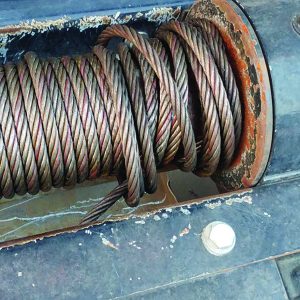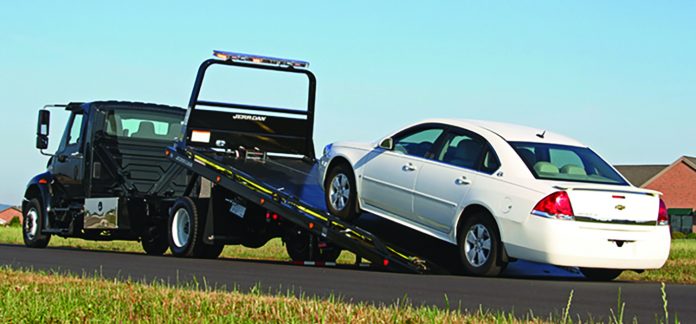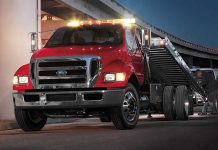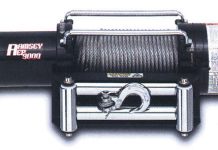This morning I saw one of the most monumentally dangerous things that I’ve ever seen, and it was preventable in at least 14 different ways. This issue transcends the towing industry and applies to anyone working with equipment or tools.
I was on I-30 eastbound in Benton, Arkansas, and a flatbed tow truck was in front of a car to be towed, which was at the front of a state police cruiser. The smooth steel bed of the flat bed was in the down position, sitting at a typical 30-45゚angle, and the tow operator was up on the bed and had about 3-4′ of cable pulled out and was yanking on the cable ferociously to unstick the rat’s nest that was the cable spool.
So, he was on the side of the freeway during a police response tow, doing this this particular task; it was raining lightly, so the normal oil residue resulting is on the flat bed of the tow truck; the truck bed is angled, and he is ferociously yanking on this cable. He could have received 6 different injuries from his actions, so here are my questions:
Why was the cable spool a rat’s nest to begin with? The deck winch is one of the most important pieces of that truck and is actually very easy to maintain in an orderly fashion, so when you release the free wheel, you can pull cable out easily. After every call, you put a little tension on the line, and you make sure that it winds up correctly. Additionally, at least once a week, go out and pull out all the cable and wind it up with tension to make sure it is neat and orderly.
Why didn’t the guy take care of the cable before he went on the call knowing he was going to be on the side of the interstate and in front of a state trooper? You look like an idiot and an unprepared fool in front of the actual person who you are contracted with for police tows.
Why doesn’t a company manager or owner check their trucks frequently to make sure things like this are handled, addressed, trained into people’s heads, and executed properly?
Why has this person not received safety and procedure training that was strong enough to make him do the right thing in the first place?
 Please bear in mind that this is the exact type of operator who might loudly declare himself all knowledgeable in the industry, swear he’s been doing it for several years, has never had a problem, and might even offer to train a new guy. As my fellow training and supervision people can attest, this guy is one hundred times more dangerous than a brand-new person with no experience. I deal with liability cases in this industry where people have little or no training and go out and do something that hurts or kills someone. As little as an hour a week of training would make a huge difference in situations like this.
Please bear in mind that this is the exact type of operator who might loudly declare himself all knowledgeable in the industry, swear he’s been doing it for several years, has never had a problem, and might even offer to train a new guy. As my fellow training and supervision people can attest, this guy is one hundred times more dangerous than a brand-new person with no experience. I deal with liability cases in this industry where people have little or no training and go out and do something that hurts or kills someone. As little as an hour a week of training would make a huge difference in situations like this.







